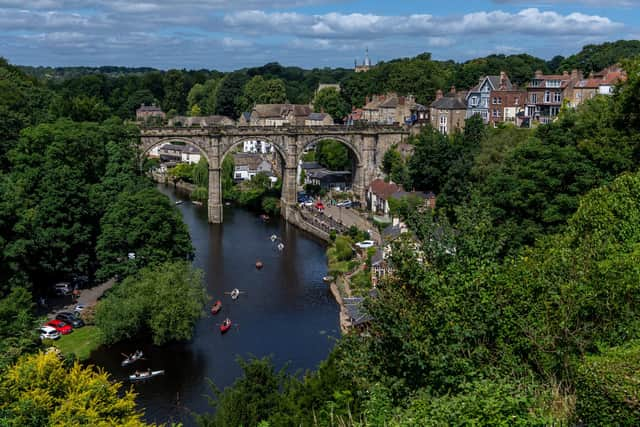River Nidd: Second Yorkshire river could be granted bathing status after water quality improved
Speaking in Parliament, Andrew Jones, MP for Harrogate and Knaresborough, said the River Nidd at Lido Leisure Park in Knaresborough should be given this status, as it would lead to a significant improvement in the water quality.
He was told that the application will be taken into consideration by the Department for Environment, Food and Rural Affairs (Defra) and a decision will be made before May next year.
Advertisement
Hide AdAdvertisement
Hide AdIf it is approved, regular monitoring will be carried out to determine how much faecal pollution and other harmful bacteria is in the water at the lido and whether it is safe to swim in.


The River Wharfe in Ilkley was the first river in the country to be designated a bathing site in December 2020.
However, in January the Environment Agency said the water quality was poor and swimming is “not advised”, as the river was being polluted by effluent from storm overflows and misconnected sewers, as well as runoff from local farms.
Mr Jones has had a series of meetings with local campaigners in Knaresborough who are concerned about the water quality in the River Nidd and claim a number of people fell ill after swimming in it during a heatwave in July last year.
Advertisement
Hide AdAdvertisement
Hide AdMr Jones said water companies like Yorkshire Water, must commit to upgrading its infrastructure, to reduce the number of sewage discharges into the river, and the Government is working to hold them accountable.
“It means improved targets, vigilant monitoring, enforcement action, increased investment from water companies, and behavioural change,” he said.